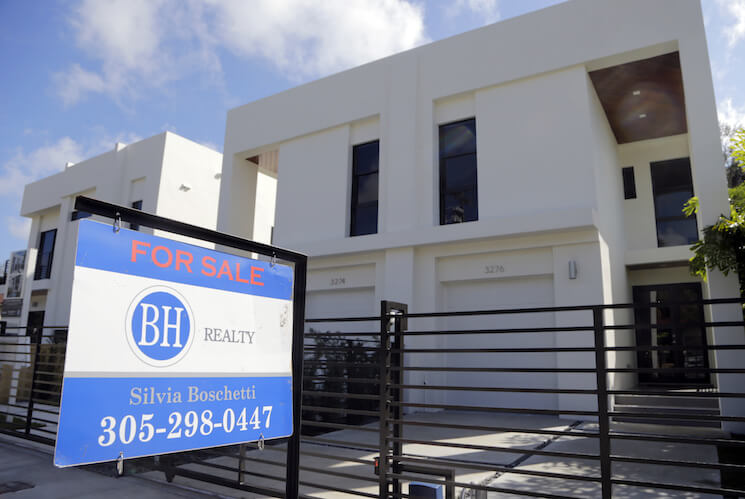The private sector offers up new U.S. home mortgage options

After the collapse of the debt-fueled housing bubble in the United States nearly a decade ago, economists, policymakers, and homebuyers are all a bit more skeptical of debt-financed housing investments. Policymakers continue to discuss a number of proposals to reconsider how mortgage markets work and potentially shift the system away from debt and toward more equity-like ways to purchase homes, but it’s the private sector where change seems to be on the move.
Andreesen Horowitz, the venture capital firm, recently announced a new round of investments in Point, a firm that will lend homebuyers money for a share of ownership in their houses. Simply put, the firm gives households a certain amount of money toward a down payment in return for some share of gains in the value of the houses. In their description of Point, Andreessen Horowitz describes the firm’s product as “the elimination of primary debt.” Is this product something that could mitigate the problems with mortgage debt that led to so many foreclosures in the wake of the recent housing bust?
Matt Levine at Bloomberg View has looked into the details of the product Point is selling (or the details that are discernable from the outside) and sorted through them. The quick version is that the product acts like a form of insurance against declines in housing prices. The extra equity investment from the company gives borrowers more protection against the equity in homes being entirely wiped out because the size of the mortgages they need to take out are smaller. The borrowers are paying for this insurance by giving up some of the gains if their home’s value goes up significantly. As Levine puts it: “If you get money from Point and your house price goes up a lot, you wish you had just gotten a bigger mortgage instead. If your house price stays flat, Point is a better deal for you.”
But is this product an “elimination” of primary debt? By increasing the size of the overall equity investment in the house, Point’s investment product would reduce the amount of debt that’s financing the purchase. But there’s still a mortgage with the rigidity that always accompanies mortgage debt financing. If housing prices decline significantly and wipe out all the equity, then homeowners are still on the hook for their mortgage payments.
Compare that scenario to ideas such as the shared responsibility mortgage proposed by economists Atif Mian of Princeton University and Amir Sufi of the University of Chicago. This kind of financial instrument would ratchet down the monthly payments that homeowners make automatically if the price of the homes decline below the value of the mortgage. PartnerOwn, a firm based in Chicago, is offering a mortgage much like the shared responsibility mortgage.
Comparing the two mortgages, Point’s product would reduce the amount of debt used, whereas a shared responsibility mortgage would change the structure of the debt altogether. In neighborhoods or communities where prices dropped significantly, the shared responsibility mortgage would enable homeowners to weather the shocks and help housing prices recover more quickly. The Point mortgage offering would only delay an (most likely) inevitable wave of debt defaults and foreclosure.
Of course, the likelihood that either of these products will dominate the mortgage market anytime soon is unlikely. But in our conversations about future reforms, it’s worth remembering that not all changes will have the same effects and there may be room for a variety of equity-linked mortgage products.

